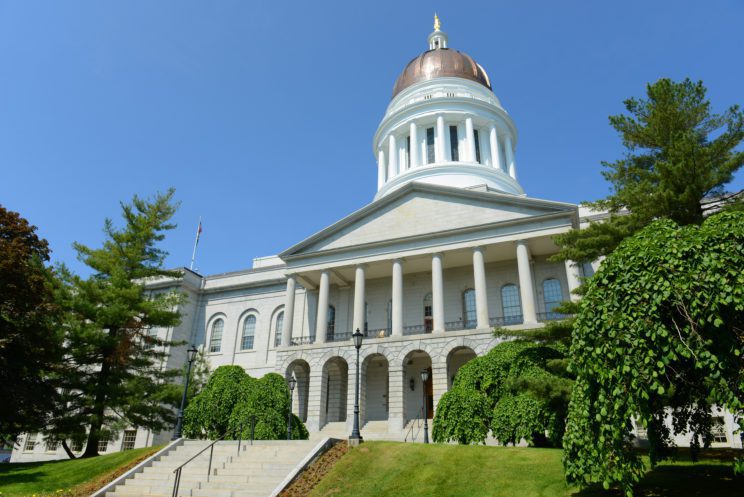The alliance’s poor performance on its target of doing outreach and education to sign up 1,000 Maine homes for weatherizing was the subject of a number of questions Thursday afternoon.
But lawmakers on the Legislature’s Joint Standing Committee on Energy, Utilities and Technology were just as interested in why the alliance hired what legislators appeared to consider an unusual number of Democratic legislators and candidates for the Legislature.
“I look at the list of names,” said Committee Co-chairman Rep. Stacy Fitts, R-Pittsfield, “the list of candidates and the list of towns and it just starts to honestly appear as something other than, or in addition to, what your original mission was.”
Alliance founder Tom Federle acknowledged that hiring three sitting Democratic House members and one Democratic House candidate for the 13-member staff — plus several high-level Democratic campaign operatives and donors — was a problem.
“We failed in being sensitive to this issue,” Federle said.
Every one of the legislators who applied for a job with the alliance got one, Alliance Executive Director Seth Murray said. But he bristled at suggestions that the organization was stacked with Democrats.
“I think it is fundamentally wrong to be looking at these sorts of appearance issues,” Murray told the committee. “I think I should be hiring the best people for the job, period.”
Committee Co-chairman Sen. Michael Thibodeau took issue with Murray: “When you’re the recipient of a no-bid contract, I don’t think it’s unreasonable for this committee to be looking at those appearances.”
And Thibodeau was concerned that the alliance may have paid the staff members who were candidates for election-related work.
“Did any of the individuals on your staff actually knock on doors in the communities for which they were candidates?” Thibodeau asked.
“I don’t believe they did,” Murray said.
Thibodeau also challenged Federle about the fees he took during the first few months of the contract.
“You must charge a lot per hour, because you ran up $47,000 in four months,” Thibodeau said.
Federle responded that his work on the project was meant to be “front-loaded and to wind down,” and that he’d put in a lot of free time on project-related work for several months prior to the contract.
The committee had also summoned Michael Stoddard, the executive director of the Efficiency Maine Trust, to explain that agency’s role in overseeing the alliance, which was technically a sub-grantee of the trust on a $30 million energy efficiency grant from the feds.
Trust officials have said they learned in late January, almost six months into the alliance contract, that the alliance had signed up only 50 homes for weatherizing and pressed the alliance to forfeit the unspent grant money. Those funds will now be used on the trust’s own successful weatherizing program, which has so far signed up at least 1,700 homes and has many more in the pipeline.
“While this is not the outcome anyone intended,” Stoddard said, “it demonstrates that the system is working. The trust’s oversight function successfully identified concerns and forced a mid-course correction.”
Adam Lee, chairman of the Efficiency Maine Trust board, said in an interview after the hearing that he believed the alliance board and staff “acted honorably.”
“Outreach is expensive,” Lee said. “Education is time-consuming and does not always show results early on. Based on my own experience, I have been sending my 13-year-old twins to school for 10 years now and don’t seem to be getting my money’s worth. However, I am not prepared to pull them out yet.”
The committee asked alliance staff and Stoddard to provide them with more information, including a list of all Department of Energy-funded projects at Efficiency Maine Trust and a list of all contractors who conducted weatherization projects as a result of the alliance’s outreach work.




